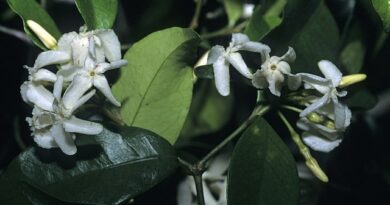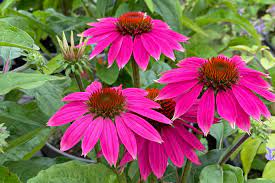20 Medicinal Health Benefits of Galinsoga parviflora (Galinsoga Herb)
Galinsoga parviflora, commonly known as Galinsoga herb or Gallant soldier, is an annual flowering plant that belongs to the Asteraceae family.
This family is well-known for its diverse array of plants, including sunflowers, daisies, and dandelions. Galinsoga parviflora is native to the Americas and is recognized for its distinctive appearance and medicinal properties.
The stems of Galinsoga parviflora are slender, erect, and branched. They can reach a height of up to 80 centimeters.
The leaves are opposite, meaning they grow in pairs along the stem. They are simple, serrated, and possess a somewhat triangular shape. The leaves are typically 2-6 centimeters long and have prominent veins.
The flowers of Galinsoga parviflora are small and white, with a characteristic daisy-like appearance. They have five petals that surround a yellow center, which is made up of numerous tiny disc florets. The flowers are arranged in clusters at the tips of the branches.
After flowering, Galinsoga parviflora produces small, dry fruits known as achenes. Each achene is topped with a tuft of fine hairs, aiding in their dispersal by wind. The plant has a fibrous root system that helps anchor it in the soil.
Galinsoga parviflora thrives in various habitats, including gardens, cultivated fields, roadsides, and disturbed areas. It has a tendency to colonize open spaces and can quickly spread due to its prolific seed production.
The plant is native to North and South America and has been introduced to other parts of the world as an ornamental plant and as a medicinal herb.
Throughout history, Galinsoga parviflora has been used for its medicinal properties. It is believed to possess anti-inflammatory, analgesic, and digestive properties. Different parts of the plant, including the leaves and flowers, are used in traditional herbal remedies to address various health issues.
These uses include alleviating digestive discomfort, managing respiratory ailments, and providing relief from minor pains.
Read Also: 10 Medicinal Health Benefits of Belladona (Atropa Acuminata)
The Medicinal Health Benefits of Galinsoga parviflora (Galinsoga Herb)

1. Digestive Aid: Galinsoga herb is known for its ability to alleviate digestive issues. It can help ease indigestion, bloating, and gastrointestinal discomfort by promoting healthy digestion and reducing inflammation in the digestive tract.
2. Anti-Inflammatory Properties: The herb contains compounds with anti-inflammatory properties, making it valuable for managing inflammation-related conditions. This includes conditions like arthritis and inflammatory bowel diseases.
3. Immune System Support: Rich in antioxidants, Galinsoga parviflora can help boost the immune system’s defenses against oxidative stress and harmful free radicals, contributing to overall wellness.
4. Respiratory Health: The herb’s expectorant and anti-congestive properties make it useful for respiratory issues like coughs, colds, and bronchitis. It can help clear congestion and promote easier breathing.
5. Pain Relief: Galinsoga herb has analgesic properties that can provide relief from minor aches and pains. It may be used topically or internally to manage discomfort.
6. Diuretic Effects: The herb’s diuretic properties promote urine production, aiding in detoxification and supporting kidney health.
7. Antibacterial Activity: Galinsoga parviflora possesses antibacterial potential, making it a natural option for combating bacterial infections and promoting overall microbial balance.
8. Anti-Anxiety and Relaxation: Some compounds in the herb may have mild sedative effects, helping to reduce anxiety and promote relaxation.
9. Skin Health: The herb’s anti-inflammatory and antimicrobial properties can be beneficial for addressing minor skin irritations, rashes, and infections.
10. Blood Pressure Regulation: Galinsoga herb might contribute to maintaining healthy blood pressure levels, supporting cardiovascular health.
11. Anti-diabetic Potential: Preliminary research suggests that the herb may help regulate blood sugar levels, making it potentially beneficial for individuals with diabetes.
12. Cardiovascular Support: The herb’s effects on circulation and blood pressure could contribute to overall heart health.
13. Anti-allergic Properties: Some components of the herb might help alleviate allergic reactions and their associated symptoms.
14. Wound Healing: Galinsoga parviflora can be used topically to support the healing process of minor wounds and cuts.
15. Anti-parasitic Effects: Traditional uses suggest that the herb could have properties helpful against certain parasitic infections.
16. Anti-cancer Potential: Although more research is needed, some studies indicate that the herb’s compounds may have anti-cancer properties.
17. Joint Health: It may assist in reducing joint inflammation and supporting arthritis management.
18. Menstrual Comfort: Galinsoga herb might help manage menstrual discomfort and promote a balanced menstrual cycle.
19. Hair and Scalp Health: The herb’s nutrients can contribute to maintaining healthy hair and scalp conditions.
20. Gastrointestinal Wellness: Galinsoga parviflora’s properties are useful for managing various gastrointestinal issues, such as gastritis and ulcers.
Read Also: 20 Medicinal Health Benefits of Cyclopia Plant (Cyclopia spp.)
The Methods of Usage to Achieve the Provided Health Benefits of Galinsoga parviflora (Galinsoga Herb)
1. Herbal Tea: Prepare a soothing herbal tea by steeping dried Galinsoga herb leaves in hot water for about 10-15 minutes. This method is excellent for addressing digestive issues, promoting relaxation, and benefiting from the herb’s antioxidants.
2. Infusion: Similar to herbal tea, an infusion involves steeping the herb in hot water for a longer period, typically 4-8 hours. This method can extract a broader range of compounds, making it beneficial for maximizing the herb’s health benefits.
3. Tincture: Create a tincture by soaking dried Galinsoga herb in alcohol (such as vodka or brandy) for several weeks. Tinctures offer a concentrated form of the herb’s active compounds and are easy to dose.
4. Topical Application: Crush fresh Galinsoga herb leaves and apply them directly to the skin to address minor skin irritations, wounds, or insect bites. You can also infuse the herb in carrier oils (such as olive or coconut oil) to create herbal salves or balms.
5. Culinary Use: Galinsoga parviflora leaves are edible and can be added to salads or cooked dishes as a nutritious herb. Incorporating the herb into your diet can offer mild health benefits while adding a unique flavor to your meals.
6. Steam Inhalation: Inhaling steam infused with Galinsoga herb can help ease respiratory congestion and provide relief from cold symptoms. Add dried herb to a bowl of hot water, cover your head with a towel, and inhale the steam.
7. Herbal Baths: Infuse the herb into your bathwater for a soothing and aromatic experience. This method can help relax muscles, ease tension, and promote overall relaxation.
8. Herbal Compress: Create a compress by soaking a cloth in an herbal infusion or decoction and applying it to the affected area. This method can help alleviate pain, inflammation, or skin irritations.
9. Capsules or Tablets: If preferred, you can find Galinsoga parviflora supplements in the form of capsules or tablets. Follow the recommended dosage instructions provided by the manufacturer.
10. Herbal Powder: Grind dried Galinsoga herb into a fine powder and use it to make herbal blends, sprinkle on foods, or incorporate into smoothies.
The Side Effects of Using Galinsoga parviflora Medicinal Plant
1. Allergic Reactions: Some individuals may be sensitive to Galinsoga parviflora and could experience allergic reactions when using or coming into contact with the herb. It’s advisable to perform a patch test before applying the herb topically or using it internally.
2. Drug Interactions: If you are taking medications or have existing medical conditions, it’s crucial to consult a healthcare professional before using Galinsoga herb.
There is a potential for interactions with certain medications, especially if you are on blood-thinning drugs or have blood pressure-related concerns.
3. Pregnancy and Breastfeeding: Pregnant and breastfeeding individuals should exercise caution when using herbal remedies, including Galinsoga parviflora. While there is limited information about its safety during pregnancy and lactation, it’s best to consult a healthcare provider before use.
4. Gastrointestinal Distress: Although Galinsoga herb is known to soothe digestive discomfort, some individuals might experience gastrointestinal distress, including upset stomach or diarrhea. Start with a small amount and observe how your body responds.
5. Skin Sensitivity: Applying Galinsoga parviflora topically may cause skin irritation or sensitivity in some people. Always perform a patch test on a small area of skin before using the herb more extensively.
6. Long-Term Use: While occasional use of Galinsoga herb is generally considered safe, there is limited research on its long-term effects. Prolonged or excessive use may have unforeseen consequences, so it’s advisable to use the herb in moderation.
7. Quality and Purity: Ensure that you source Galinsoga herb from reputable suppliers to ensure its quality and purity. Using contaminated or adulterated herbs can lead to adverse effects.
8. Children and Infants: Children and infants may react differently to herbal remedies. Consult a pediatrician before using Galinsoga herb for children.
9. Individual Variability: Each person’s body and health status are unique. What works well for one individual may not be suitable for another. Pay attention to your body’s responses and consult a healthcare provider if you have concerns.
Read Also: Collective Farming: The Key to Sustainable Food Systems









